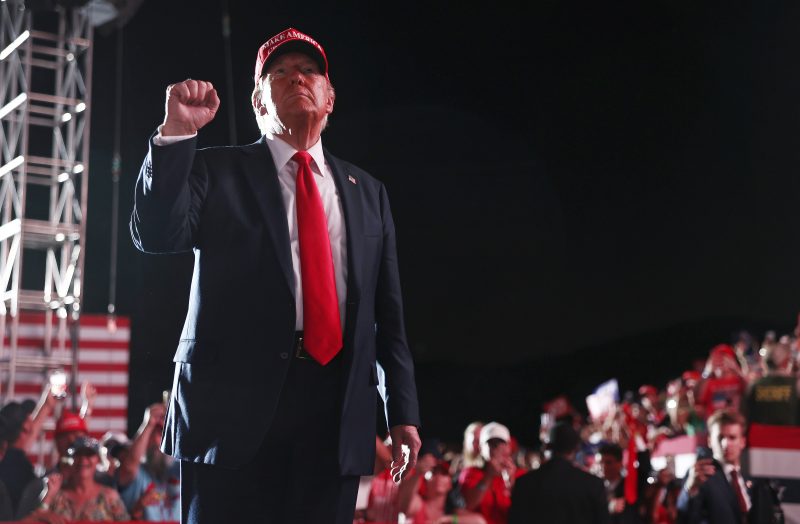In a recent rally, former President Donald Trump made a controversial suggestion about how an unruly heckler should be handled, causing mixed reactions from the audience and the public alike. The incident began when a protester interrupted Trump’s speech, to which he responded by suggesting that the heckler should get the hell knocked out of her. This strong statement immediately drew attention and ignited a debate about the use of violence in responding to dissent.
While it is not uncommon for politicians to face disruptions during public appearances, Trump’s suggestion of physical violence as a response is alarming. Advocating for any form of violence, especially against a protester exercising their right to free speech, sets a dangerous precedent and undermines the principles of democracy and civil discourse.
The role of a public figure, especially a former President, comes with a significant responsibility to set a positive example for the public. Using language that incites or trivializes violence has the potential to inflame tensions and incite aggressive behavior among supporters. It is essential for leaders to condemn violence and promote peaceful and respectful dialogue, even in the face of challenges or disagreements.
The incident at the rally highlights a broader issue of how political figures can influence public behavior through their words and actions. In a polarized political climate, where tensions are already high, it is crucial for leaders to demonstrate restraint and empathy in their interactions with the public. Responding to dissent or criticism with violence only escalates the situation and creates a hostile atmosphere that is detrimental to healthy democratic discourse.
Rather than resorting to aggressive or inflammatory language, leaders should seek to engage with dissenting voices in a constructive and respectful manner. Emphasizing the importance of tolerance, understanding, and peaceful dialogue can help bridge divides and promote unity within a diverse society. Encouraging open communication and civil debate can lead to meaningful exchanges of ideas and foster mutual understanding, even among those with differing perspectives.
In conclusion, the incident at the rally serves as a reminder of the need for political leaders to uphold the values of democracy and civility in their interactions with the public. Trump’s suggestion of violence as a response to dissent sets a concerning precedent and undermines the principles of free speech and peaceful coexistence. Moving forward, it is essential for leaders to promote a culture of respect, tolerance, and dialogue to foster a healthy and thriving democratic society.
